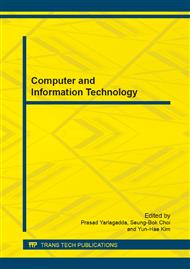p.1276
p.1281
p.1287
p.1295
p.1299
p.1305
p.1309
p.1313
p.1321
The Pest Management Model with Impulsive Control
Abstract:
Based on integrated control strategy with spraying pesticides and releasing natural enemies at different fixed moments, we establish a pest management model with impulsive control. Using Floquet theorem of impulsive differential equations and comparison theorem, we obtain the sufficient conditions of globally asymptotical stability of the pest-eradication periodic solution and permanence of the model.
Info:
Periodical:
Pages:
1299-1304
Citation:
Online since:
February 2014
Authors:
Price:
Сopyright:
© 2014 Trans Tech Publications Ltd. All Rights Reserved
Share:
Citation:


